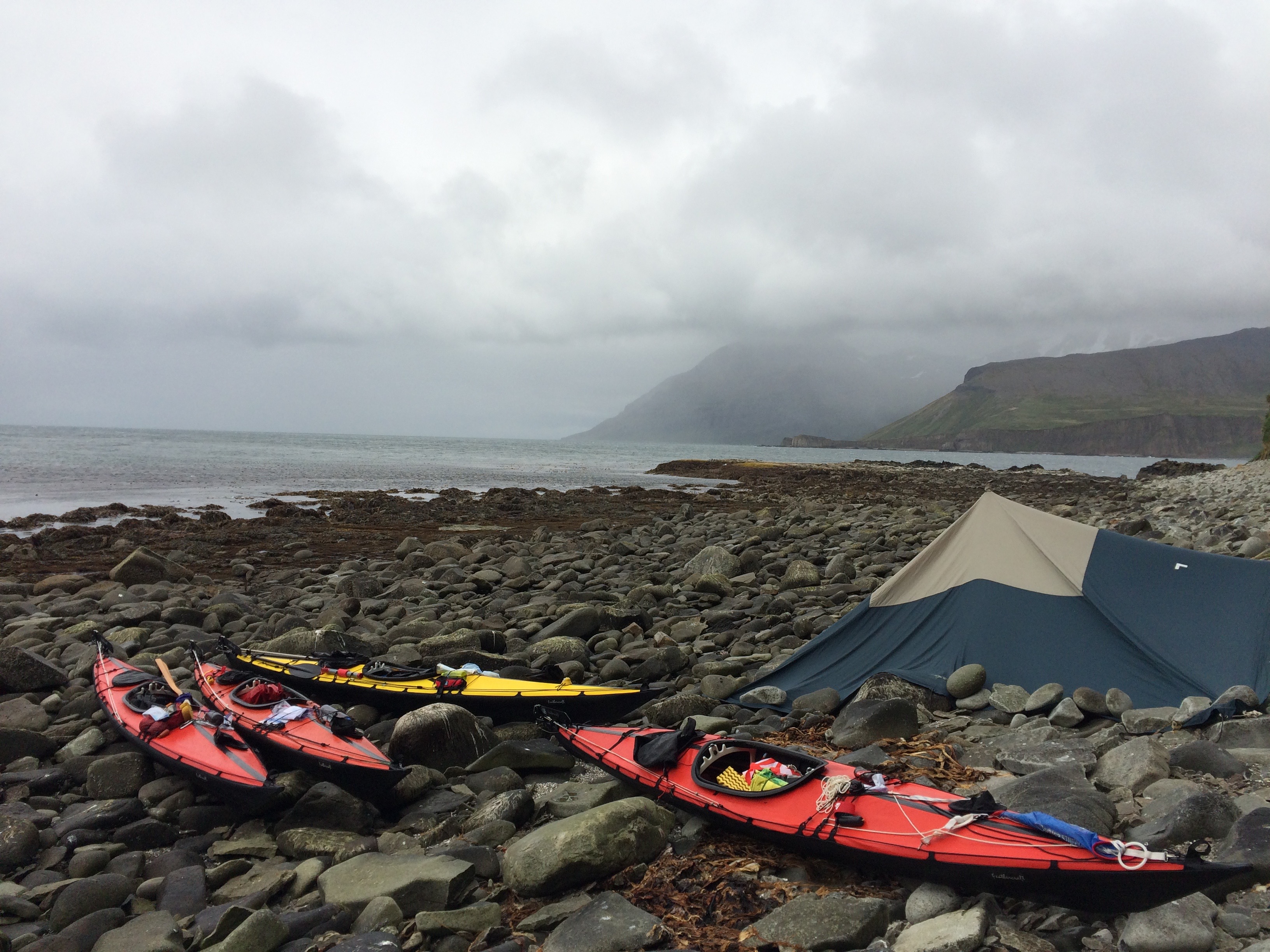Cold Bay to Unalaska is nearly 200 miles. By plane, it takes about an hour. By kayak, it’s nearly a month. Akio Shinya made the trip — with three others — in 24 days.

“I am old man, 69-years-old,” Akio Shinya said. “So very hard, but now I am happy.”
Over the past 16 years, he has taken six kayak trips to the Aleutian Islands. A place he considers special.
“Kayak was born here,” Shinya said. “Aleutian Island chain. They have big history, so I am interested in the ancient people and Aleutians.”
Shinya lives on Japan’s northern island — Hokkaido — in the village of Niseko where he runs a ski lodge. In the summers, he operates a kayak tour business and occasionally he takes people on expeditions to the Aleutians.
The kayakers are completely self-sufficient. They carry all their own food and camping supplies. They paddle collapsible kayaks designed to be easily transported and assembled without tools. The Japanese prefer these boats because they have an outer skin stretched over an aluminum frame similar to the skin-on-frame kayaks designed and used in the Aleutians for thousands of years. Shinya and his co-leader, Takao Araiba, even use traditional Aleut paddles made by a friend in Japan.
“Every time, always, I use Aleut paddles in Japan and here,” Shinya said. “This paddle is good for Aleutians. Paddling is very smooth.”
They’re wooden with a narrow bridge. Shinya calls himself a student of ancient people. On his trips he does not use a GPS, satellite phone, or rescue radio because ancient people did not have them.
Although this trip is over, he hopes one day to return to the Aleutians.
“I know, I old man,” Shinya said. “If possible more paddling. My experience of Aleutian is very small”
Zoe Sobel is a reporter with Alaska's Energy Desk based in Unalaska. As a high schooler in Portland, Maine, Zoë Sobel got her first taste of public radio at NPR’s easternmost station. From there, she moved to Boston where she studied at Wellesley College and worked at WBUR, covering sports for Only A Game and the trial of convicted Boston Marathon bomber Dzhokhar Tsarnaev.




